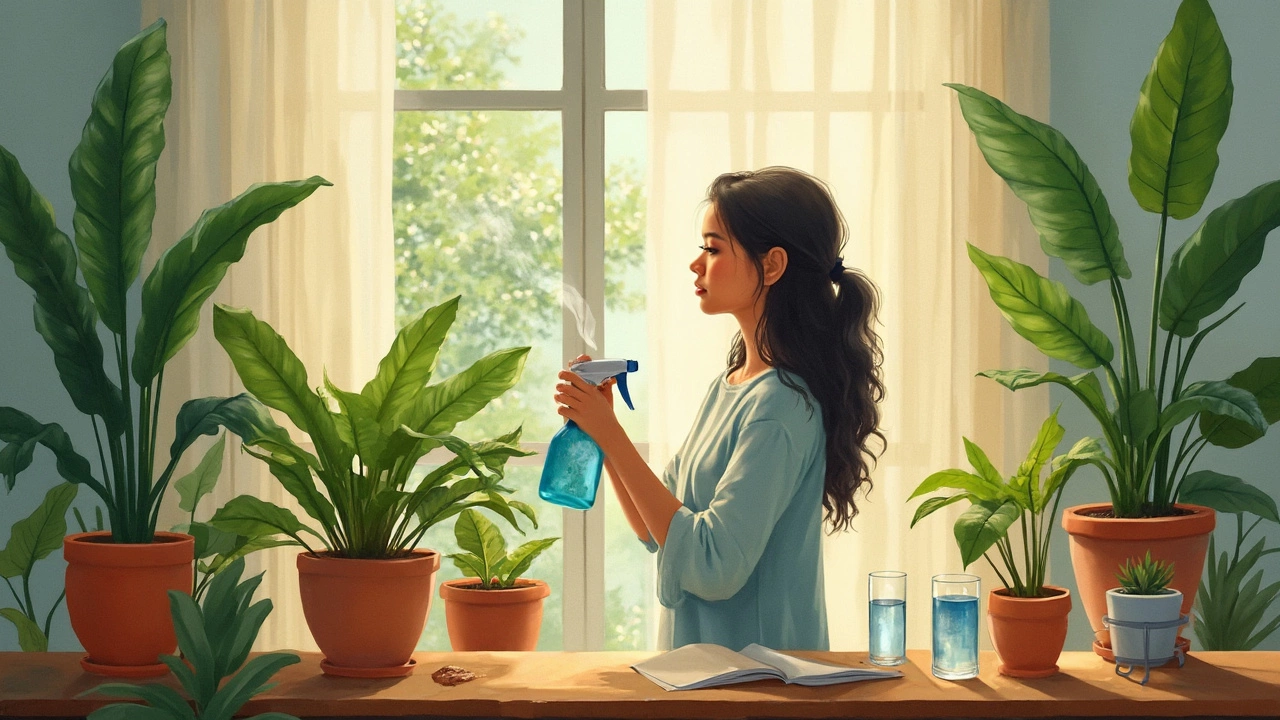Tap Water: Essential Guide for Everyday Use
When working with tap water, the water delivered through municipal pipes to homes, offices and farms. Also known as municipal water, it serves as the primary source for drinking, cooking, cleaning and garden irrigation, the controlled application of water to plants. The water quality, the chemical, physical and biological makeup that decides safety and suitability of tap water directly influences health, plant growth and even the efficiency of small‑scale manufacturing processes that rely on clean water. In short, tap water is the backbone of daily life, but its value depends on how clean it is, how wisely you use it, and how you protect the source.
Why Water Quality Matters and How to Test It
Good water quality is the foundation for safe drinking and healthy plants. If the pH drifts too low or heavy metals like lead appear, both humans and seedlings can suffer. Simple at‑home kits let you check chlorine, hardness, pH and microbial presence within minutes, giving you a clear snapshot of what’s coming out of your faucet. Knowing these numbers lets you decide whether a basic carbon filter, a reverse‑osmosis system, or just a regular flush of the pipes will do the trick. For gardeners, matching the water’s mineral content to the needs of specific crops can boost yields – for example, lettuce prefers slightly acidic water, while tomatoes thrive with a bit more calcium. When you understand the link between tap water quality and plant health, you can adjust fertiliser schedules, add rain‑water blends or run a UV purifier to keep the balance right.
Beyond health, mindful use of tap water saves money and eases pressure on municipal supplies. Strategies like drip irrigation, delivering water directly to the root zone cut waste by up to 70 % compared with traditional sprinklers, and they rely on the same tap water you already have on hand. Reusing grey‑water from sinks for non‑edible plants, fixing leaks promptly, and timing watering for early morning or late evening reduce evaporation losses. In manufacturing mini‑workshops, recycling rinse water for cleaning tools can lower the overall tap water demand, showing how a single resource touches multiple facets of life. All these practices create a loop: better quality tap water supports healthier plants, which in turn demand less water, reinforcing conservation.
Now that you see how tap water connects to health, gardening and efficient use, you’ll find the articles below dive deeper into each angle. From daily watering schedules for container gardens to DIY drip‑irrigation installs, from testing your tap water for hidden contaminants to understanding why water‑intensive industries matter for the Indian economy, the collection gives you practical steps you can apply right away. Explore the range and pick the tips that fit your situation – whether you’re thirsty for safer drinking water, looking to boost your garden’s productivity, or seeking ways to cut down on your monthly water bill.
Is Tap Water OK for Plants? Know What You're Pouring
Ever wondered if your tap water is hurting your indoor plants? This article breaks down what’s really in that glass you pour for your leafy friends and how it can affect them. Get practical tips for making tap water safer for your greens, learn about the minerals and chemicals that could stress your plants, and pick up hacks for when bottled water just isn’t an option. If you love houseplants and want them to thrive, you’ll want to know the real deal about tap water.
Can I Mist Plants with Tap Water? What Every Indoor Gardener Needs to Know
Misting is a go-to trick for boosting humidity around indoor plants, but is tap water safe to use? This article breaks down what really happens when you spray your plants with tap water, spotlighting what’s in it and how different plants might react. You’ll get straight-up answers plus useful tips on making your misting routine safer and more effective. Ever wondered if you should be worried about tap water stains or leaf damage? Or which plants really benefit from misting? Here’s the real dirt—so you don’t accidentally harm your green buddies.
- manufacturing
- India
- food processing
- garden tips
- rice cultivation
- government schemes
- balcony garden
- urban gardening
- balcony gardening
- profitable business
- business ideas
- plastic manufacturing
- drip irrigation
- plant care
- steel manufacturing
- sustainable gardening
- startup ideas
- steel industry
- flower gardening
- textile manufacturers







